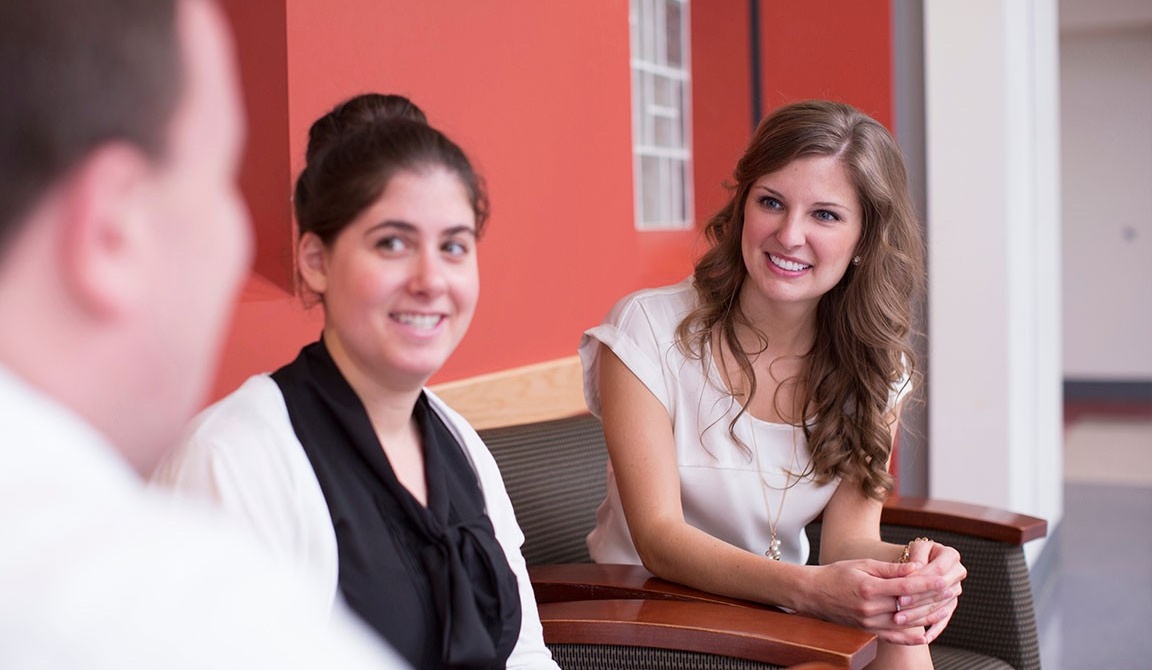Mentor Program

Connect-a-Bull connects current School of Management students with alumni who are interested in helping students with their career planning and exploration. Volunteer to become a mentor.
Become a Mentor
Mentoring a student can be one of the most rewarding ways to support the School of Management. As a mentor you have the ability to provide guidance, advice and ideas to students. Best of all you have full discretion to determine your time commitment. The full mentoring process could be as simple as a single phone call, an email exchange or an in-depth conversation over a cup of coffee – your choice based on your schedule.
Connect-a-Bull
Connect-A-Bull is the university's system that allows students to seek mentors. It provides a way for UB School of Management students (and other UB students) to contact alumni and friends of the University who are interested in helping students with their career exploration and planning.
The system provides opportunities for graduate and undergraduate students to speak with professionals to obtain career-related information such as:
- Potential career paths
- Industry information
- Your experience and insights
- Job duties and responsibilities
- Professional associations
- Graduate school advice
- Strength of the job market
- Names of potential employers
- Relocation information/housing considerations
Mentor's Role
The mentor's role is to volunteer their time and knowledge. They serve as guides, advisors, idea generators and information providers. They may serve as a source of job leads or industry contacts, but they are not recruiters and should not be expected to "get jobs" for students.
Mentoring Process
Contacting Mentors
Students can search Connect-a-Bull for mentors based on various preferences (function, industry, employer, location, field of study). In addition, the mentor can establish how many consultations (students they would like to chat with) are allowed per month. The student will initiate contact through the network. After the initial contact, it is up to the mentor on how to communicate with the student. Often, subsequent contacts occur; mentors will let students know whether email, telephone or face-to-face contact best fit into their schedule.
Volunteer to mentor School of Management students. Discuss career paths, industry trends, graduate school and more. Provide tips on how students can enhance their skills and build their résumé.
Join Connect-a-Bull today.
Contact Us
Frank L. Ciminelli Family
Career Resource Center
School of Management
University at Buffalo
308 Alfiero Center
Buffalo, NY 14260-4010
Tel: 716-645-3232
Fax: 716-645-3231
mgt-crc@buffalo.edu
Office Hours
Monday-Thursday
8:30 a.m. - noon
and 1 p.m. - 5 p.m.
Friday
8:30 a.m. - 4 p.m.
If you have a scheduled meeting between noon and 1 p.m., please knock.
